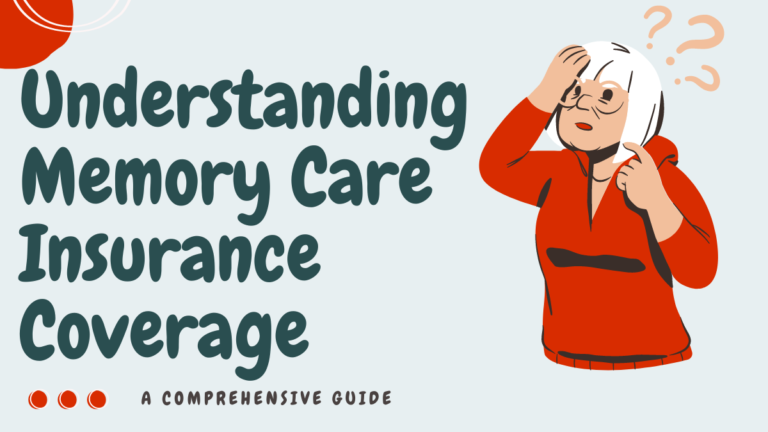What Does Your Insurance Cover In-Home Care? Find Out Now!

Are you prepared for the unexpected? While we may hope to never need in-home care, it’s crucial to have a plan in place just in case. But here’s the important question: does your insurance cover this vital service? If you’re unsure or simply curious, look no further! In this blog post, we’ll dive into the nitty-gritty details of insurance coverage for in-home care and ensure that you’re equipped with all the knowledge necessary to protect yourself and your loved ones. So grab a cup of coffee, sit back, and let’s unravel this mystery together!
Table of Contents
What is In-Home Care?
In-home care is a type of long-term care that can be provided in the home by a family member, hired professional, or social service agency. It’s often considered an affordable option for elderly or disabled people who need assistance with basic tasks like bathing, dressing, and feeding themselves.
Most in-home care services are covered by insurance policies, but there are some important caveats to keep in mind. First, make sure you read your policy carefully to see if it covers in-home care services. Second, ask your insurer about coverage limits and exclusions. Third, be aware that some in-home care services may not be covered at all if they’re not considered medically necessary.
Be sure to discuss your specific needs and preferences with your provider before beginning The essential elements of good quality homecare include training caregivers so that they can provide the best possible care while respecting the individual’s privacy and autonomy. Home care should also feature monitoring and assessment tools to ensure that residents are receiving appropriate levels of support tailored to their individual needs.
Components of such a program might involve: orienting new residents to their surroundings; help with personal hygiene; providing assistance with activities of daily living such as getting out of bed or dressing; supervising meals or medication regimen; communicating with other members of the household if required; and arranging transport when necessary In order to receive funding through Medicaid’s Long Term Care (LTC) program , caregivers must meet rigorous requirements set forth by the state.
Types of In-Home Care
There are a number of different types of in home care that an individual may need, depending on their specific situation. This includes but is not limited to 24/7 care, help with basic everyday tasks such as bathing and toileting, assistance with meals, transportation to appointments or treatments, and more.
Each type of in-home care has its own set of benefits and drawbacks. For example, 24/7 care can be very beneficial for individuals who require constant attention or who have difficulty engaging in regular activities on their own due to age or physical limitations. However, this type of care can also be quite expensive, and it may not be covered by most insurance plans.
Other types of in-home care can be more cost-effective but require some degree of flexibility on the part of the individual receiving the service. For example, assistance with basic day-to-day tasks may only require an occasional visit from a caregiver while assistance with meal preparation or transportation may need to be scheduled in advance.
To speak with a caregiver about specific needs and see if they are a good fit for your family, contact a local home health agency or personal assistant company today!
How Do You Qualify for In-Home Care?
If you are thinking about in-home care, you may be wondering if your insurance covers it. In-home care is a great way to keep your loved one as comfortable and safe as possible while you are away. To find out if your insurance covers in-home care, you first need to determine if you qualify for the service.
To qualify for in-home care, your loved one must meet certain guidelines, including being diagnosed with a qualifying condition and requiring regular assistance with daily activities. You can also find out more about your individual insurance coverage by visiting the website of your chosen health insurance provider.

How Much Does In Home Care Cost?
One of the most common concerns that people have when it comes to senior care is how much it will cost. This is because few families know ahead of time how much in-home care their loved one will need. The good news is this question can be easily answered by checking with your insurance company.
Here are a few things to keep in mind when figuring out how much in-home care costs:
Your specific needs will be different based on your loved one’s age, health, and other abilities. So, don’t think that just because you require minimal assistance at home that your loved one doesn’t qualify for in-home care. In fact, many seniors have advanced Alzheimer’s or other forms of dementia and require more hands-on care than typical residents of retirement communities or assisted living facilities.
There are also different types of in-home care, including full time help with activities such as bathing and dressing, errands assistance, light housekeeping tasks, medication review/ management, transportation assistance to doctor appointments and other services as needed. So the price tag for this type of service will likely be higher than what a family might pay for part time help only.
Another factor to consider is who pays for the care? If it falls within the boundaries of the resident’s long-term healthcare plan or Medicare coverage then those individuals are typically responsible for a portion of the cost . However if you’re paying out of pocket then you’ll need to account for that as
Who Pays for In-Home Care?
According to the National Association for Home Care and Hospice, approximately 16 million Americans use in-home care services. However, not all insurance companies cover in-home care. To find out if your insurance company covers in-home care, call them and ask. Alternatively, you can visit annuityplanning.about.com to find out if an annuity plan will cover in-home care services.
There are a few downsides to using in-home care services. For one, the cost of services can be high. Additionally, some people do not feel comfortable leaving their homes and need assistance with daily activities such as bathing and dressing. If you are considering using in-home care services, it is important to weigh the pros and cons with your family or caregiver before making a decision.
Are There Any Costs Associated with Receiving In-Home Care?
There are typically several costs associated with receiving in-home care, starting with the upfront cost of the service. Home health aide agencies generally charge a one-time fee for each visit, and some may also require a monthly payment plan. There may be additional charges for accidents or incidents that occur while your loved one is in the home, which can range from fees to repair or replace items damaged during such an occurrence to charges for medical services provided as a result of the accident.
Another cost associated with in-home care is transportation. If you choose to have your loved one stay at home instead of traveling to receive care, they will require regular trips to the home health aide agency or provider. You may also need to cover travel costs if your loved one needs to be moved between their residence and care facility.
There are often additional costs associated with groceries and other necessary supplies used in providing care. Home health aides typically purchase food items on a weekly basis, so you may need to prepare additional meals or buy supplemental foods if your loved one requires round-the-clock assistance. Additionally, some equipment needed for daily living such as walkers or wheelchairs may come with an extra fee. Depending on your loved one’s needs, these costs could add up quickly.
Conclusion
If you are in need of in-home care, it is important to know whether your insurance will cover the costs. In some cases, it might be more affordable for you to hire a professional caregiver rather than have your loved one reside in an assisted living or home health care setting. Speak to your insurance representative to find out what is covered and what is not. Additionally, make sure to budget for the cost of care upfront so you do not encounter any unexpected expenditures down the road.






